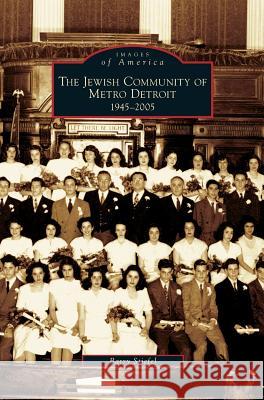Jewish Community of Metro Detroit 1945-2005 » książka
Jewish Community of Metro Detroit 1945-2005
ISBN-13: 9781531624323 / Angielski / Twarda / 2006 / 130 str.
After the end of World War II, Americans across the United States began a mass migration from the urban centers to suburbia. Entire neighborhoods transplanted themselves. The Jewish Community of Metro Detroit: 1945 -2005 provides a pictorial history of the Detroit Jewish community's transition from the city to the suburbs outside of Detroit. For the Jewish communities, life in the Detroit suburbs has been focused on family within a pluralism that embraces the spectrum of experience from the most religiously devout to the ethnically secular. Holidays, bar and bat mitzvahs, weddings, and funerals have marked the passage of time. Issues of social justice, homeland, and religion have divided and brought people together. The architecture of the structures the Detroit Jewish community has erected, such as Temple Beth El designed by architect Minoru Yamasaki, testifies to the community's presence.
After the end of World War II, Americans across the United States began a mass migration from the urban centers to suburbia. Entire neighborhoods transplanted themselves. The Jewish Community of Metro Detroit: 1945 -2005 provides a pictorial history of the Detroit Jewish communitys transition from the city to the suburbs outside of Detroit. For the Jewish communities, life in the Detroit suburbs has been focused on family within a pluralism that embraces the spectrum of experience from the most religiously devout to the ethnically secular. Holidays, bar and bat mitzvahs, weddings, and funerals have marked the passage of time. Issues of social justice, homeland, and religion have divided and brought people together. The architecture of the structures the Detroit Jewish community has erected, such as Temple Beth El designed by architect Minoru Yamasaki, testifies to the communitys presence.











